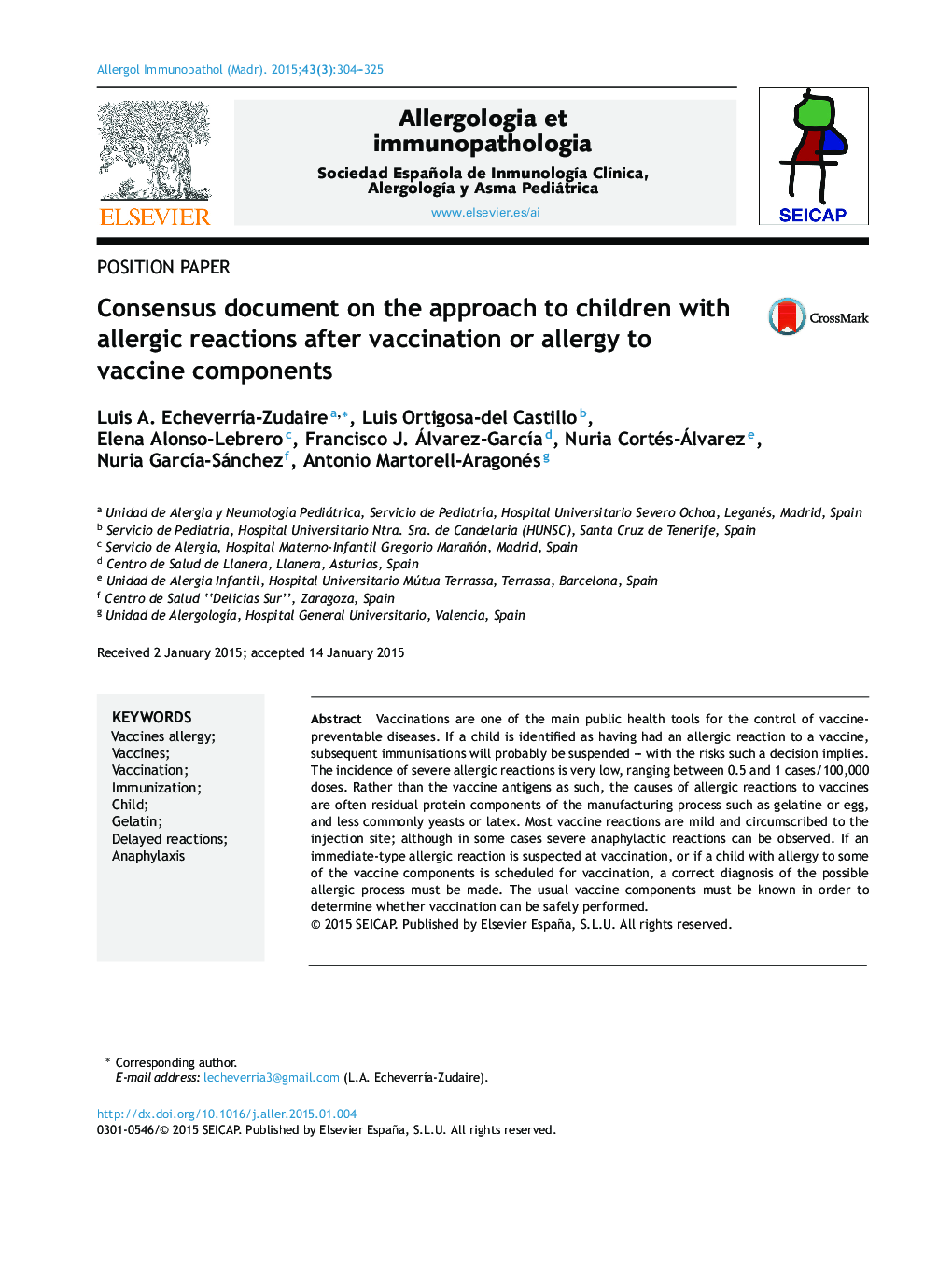| Article ID | Journal | Published Year | Pages | File Type |
|---|---|---|---|---|
| 3339633 | Allergologia et Immunopathologia | 2015 | 22 Pages |
Abstract
Vaccinations are one of the main public health tools for the control of vaccine-preventable diseases. If a child is identified as having had an allergic reaction to a vaccine, subsequent immunisations will probably be suspended - with the risks such a decision implies. The incidence of severe allergic reactions is very low, ranging between 0.5 and 1 cases/100,000 doses. Rather than the vaccine antigens as such, the causes of allergic reactions to vaccines are often residual protein components of the manufacturing process such as gelatine or egg, and less commonly yeasts or latex. Most vaccine reactions are mild and circumscribed to the injection site; although in some cases severe anaphylactic reactions can be observed. If an immediate-type allergic reaction is suspected at vaccination, or if a child with allergy to some of the vaccine components is scheduled for vaccination, a correct diagnosis of the possible allergic process must be made. The usual vaccine components must be known in order to determine whether vaccination can be safely performed.
Related Topics
Life Sciences
Immunology and Microbiology
Immunology
Authors
Luis A. EcheverrÃa-Zudaire, Luis Ortigosa-del Castillo, Elena Alonso-Lebrero, Francisco J. Álvarez-GarcÃa, Nuria Cortés-Álvarez, Nuria GarcÃa-Sánchez, Antonio Martorell-Aragonés,
